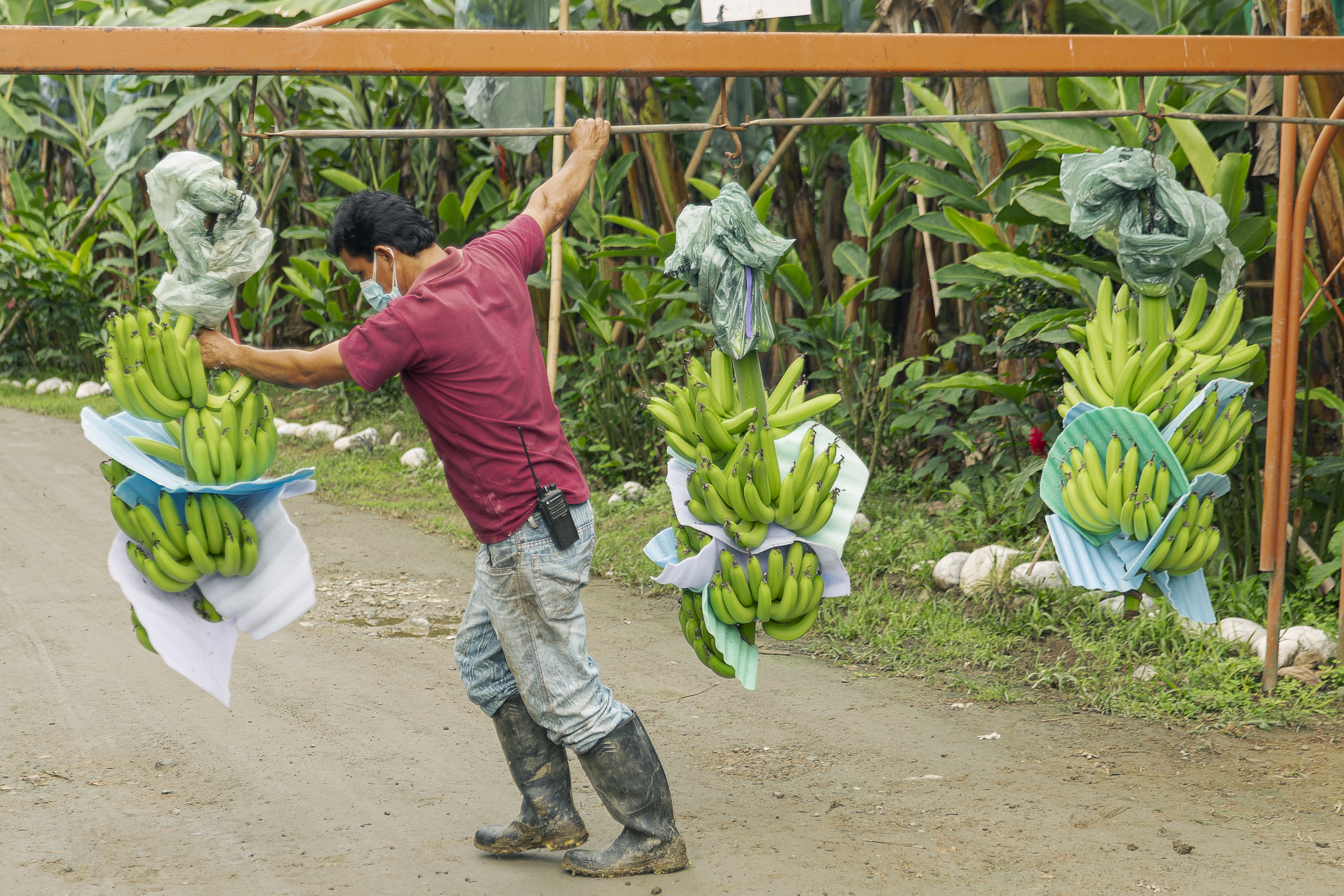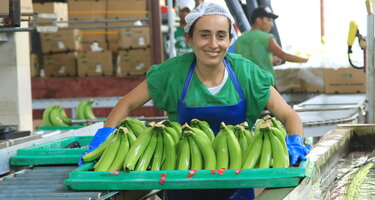Ecuador: Empowering Banana Workers and Their Representatives with Support from Banana Link
The implementation of the project “Towards Living Wages in the Banana Sector”, led by the German Retailers Working Group, began in Ecuador. One of the core focuses was strengthening banana farm workers and their representatives. Strong worker representation is essential for achieving fair wages, as it amplifies employees’ voices, protects their rights, and enables meaningful social dialogue with employers on equal footing. To support this goal, GIZ on behalf of the BMZ partnered with the UK-based NGO Banana Link, known for its commitment to social dialogue and workers’ rights in the global banana trade.
Given the complexity of the trade union landscape in Ecuador, the first step was to identify which actors could be meaningfully supported by Banana Link to ensure lasting impact. At the start of the project, SINUTRABE was the only officially recognized, cross-company workers’ organization in the banana sector. Strengthening SINUTRABE institutionally was seen as a crucial step toward advancing social dialogue and negotiating collective bargaining agreements more effectively.
Training Program for Worker Representatives
Alongside efforts to enhance SINUTRABE’s negotiation capacity, worker representatives were trained on key wage-related topics. The aim was to enable them to advocate not only for dignified working conditions but also for wages that meet the criteria of a living wage. A total of 14 thematic training sessions were conducted, reaching around 325 participants. Topics included Ecuadorian labor law, the national social security system, social dialogue strategies, gender-based wage disparities, and the calculation of living wages based on the Anker Methodology.
Although SINUTRABE was dissolved during 2023, the project ensured continuity by training other union members committed to defending workers' rights, helping preserve and strengthen local labor leadership structures.
Study Highlights Living Wage Gap

A key component of Banana Link’s work in Ecuador was a study on wage and working conditions in Pasaje canton, El Oro Province—one of the country’s most important banana-growing regions. Conducted in early 2024, the study involved voluntary interviews with 150 banana workers. The findings were striking: 71% of those surveyed were unaware of Ecuador’s legal minimum wage, and nearly 60% had never heard of the term “living wage.” While Ecuador’s constitution guarantees a “Salario Digno” – a dignified wage comparable to a living wage – this lack of awareness means many workers are not fully informed about their rights.
About one-third of respondents reported earning less than US $21 per day, and nearly 10% earned under US $16 per day. While this is slightly above the 2024 legal minimum wage of US $15.30 per day, it remains below the living wage benchmark of approximately US $16.50 per day, as calculated by the Global Living Wage Coalition. These wages are insufficient to cover basic needs. Women were among the lowest-paid workers, and only 53% of respondents reported having social security coverage.
While the study reflects only a small segment of Ecuador’s banana sector, its insights are crucial for understanding real working conditions. It also highlights the urgent need for targeted support to help producers move toward paying a living wage and ensuring dignified, sustainable employment in the banana industry.
Please, find the whole study here.
